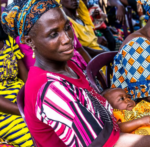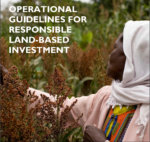This suite of tools is intended to provide background information and guide USAID staff, United States Government personnel and development practitioners to address land based programming and programming that incorporates elements related to land.
The U. S. Government is a global leader in the land and resource governance sector. Through international agreements, global coordination, and bi-lateral development assistance, the United States supports programs and policies that create more transparent, accountable, accessible, predictable and stable access to land and other resources, enabling more responsible private sector investment and fostering broad-based economic growth. To ensure that these programs meet the highest international standards for responsible and sustainable development, USAID has developed the following tools and guidelines for programming.
Available Tools and Resources
These toolkits can provide useful information for development practitioners related to programming challenges around cross-sector issues, including conflict, gender and natural resource management.






